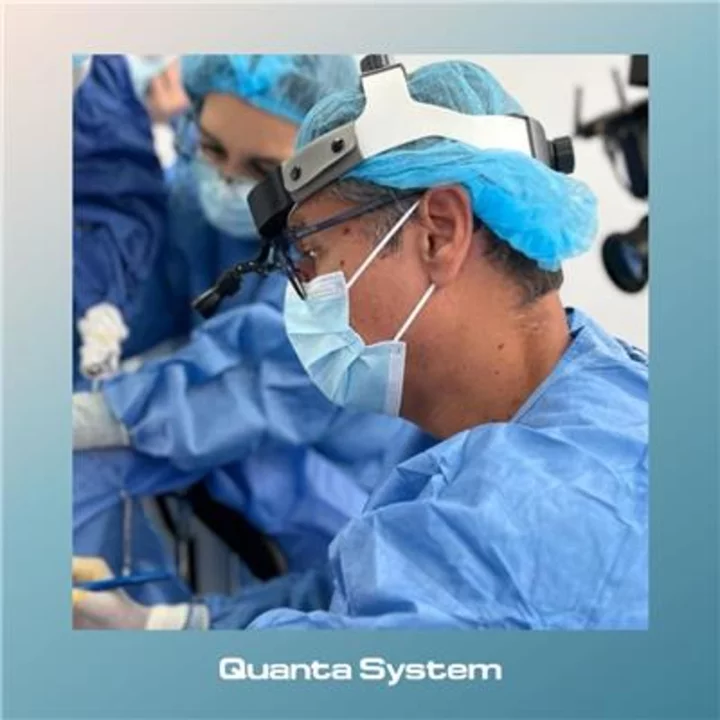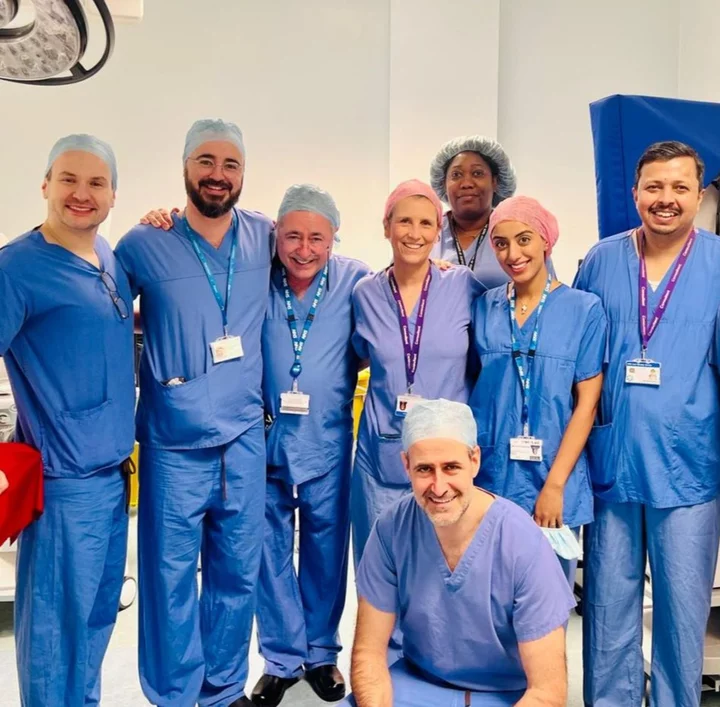
'Corsage' star admits child porn charges in Austria court
A star of the award-winning film "Corsage" about the free-spirited Austrian empress Sisi pleaded guilty Tuesday to child pornography charges...
2023-09-05 16:49

Hong Kong's top court tells government to create 'legal recognition' for same-sex partnerships
Hong Kong's top court has ordered the city's government to set up a new framework to legally recognize the rights of same-sex couples in a partial victory for LGBTQ activists that stopped short of their demands for full marriage equality.
2023-09-05 15:59

Everything you need to know about perimenopause
Claire Richards has opened up about her experience perimenopause, saying that she feels “lucky” to be experiencing it at this stage in her life. The Steps singer, 46, said on Good Morning Britain: “I feel quite lucky to be going through it [perimenopause] in a period where others have spoken out about it already. There’s a lot more information for me to find. “And I think half the population is going to go through at some point and I was surprised at how little we know as women about perimenopause, menopause, [or] anything that happens to us. Here’s everything you need to know about perimenopause... What is perimenopause? Perimenopause is the transitional period before menopause, and can occur any time between your mid-30s to mid-50s. According to The Menopause Charity, menopause is when your ovaries stop producing eggs and your hormone levels fall. Perimenopause is the gradual process before this when your ovaries start to slow down, and The Menopause Charity says it can last for a few months or several years. Menopause begins when you have not had a period for 12 months, the NHS states. What are the symptoms? The first symptoms of perimenopause are usually (but not always) changes in the normal pattern of your periods, the NHS says. Otherwise, the symptoms are very similar to what women experience once they have reached the menopause. Everyone experiences perimenopause differently, but according to the NHS, mental health symptoms can include mood changes, anxiety, low self-esteem and brain fog. Common physical symptoms can include hot flushes, restlessness, heart palpitations, migraines, muscle aches and joint pains, weight gain, dry and itchy skin, reduced sex drive, vaginal pain and dryness, and consistent urinary tract infections (UTIs). What helps ease the symptoms? Lifestyle adjustments can help ease perimenopause and menopause symptoms. The NHS advises plenty of rest, a healthy diet, regular exercise and doing relaxing things, as well as steering clear of alcohol and cigarettes. Vaginal moisturisers or lubricants can help ease vaginal dryness. Speak to your GP if you are concerned about your symptoms. Hormone replacement therapy (HRT) can be prescribed for people going through both perimenopause and menopause, replacing oestrogen as hormone levels start to drop. Talking therapy (CBT) is another option and could help with symptoms including low mood and anxiety. Read More Woman says she started to wear ‘terrible wigs’ after her job banned her pink hair Joe Wicks defends decision to pull five-year-old daughter out of school TikToker sparks backlash for complaining about popular European vacation spots: ‘Dying to go home’ Can a vegan diet help with hot flashes in menopausal women? Alzheimer’s: How and when to talk to someone about their memory loss What are gynaecological cancers and how can you prevent them?
2023-09-01 16:58

The Feminine Well-Being: Quanta System’s Laser Improves Intimate Health and Quality of Life for Women With Various Pathologies
LIMA, Peru--(BUSINESS WIRE)--Aug 30, 2023--
2023-08-30 20:28

Two Ugandan men may face death penalty after 'aggravated homosexuality' charge
Two men in Uganda are facing separate charges of "aggravated homosexuality," an offense punishable by death under the country's controversial new anti-gay laws.
2023-08-30 00:57

Luis Rubiales: Hermoso kiss 'shows why women don't report abuse'
The row over Luis Rubiales kissing Jenni Hermoso has struck a chord with women around the world.
2023-08-29 15:50

Jenni Hermoso: Players and fans support Spain World Cup star in kiss row
The furore over the Spanish football chief's kiss on the lips generates protests at matches.
2023-08-28 08:24

Riders in various states of undress cruise Philadelphia streets in 14th naked bike ride
Hundreds of riders in various states of dress -- or undress – are riding through some of Philadelphia’s main streets for the 14th Philly Naked Bike Ride
2023-08-27 06:52

2 sex workers describe 'violent' encounters with Gilgo Beach suspect, official says
Two women held in Suffolk County jail say they had encounters with accused Gilgo Beach serial killer Rex Heuermann, describing the meetings with him as "violent" and "aggressive," sheriff's department spokesperson Vicki DiStefano said Thursday.
2023-08-26 03:53

Andrew Tate prosecution files reveal graphic claims of coercion ahead of trial
Romanian prosecutors' files, seen by BBC, allegedly show the influencer coercing women into sex acts.
2023-08-23 13:29

How did surgeons carry out Britain’s first womb transplant?
Surgeons worked all day and into the night to ensure Britain’s first womb transplant went smoothly. Its success is down to meticulous research, years of sharing knowledge between experts around the globe, and the hard work and dedication of doctors Professor Richard Smith, from Imperial College London, and Isabel Quiroga, from the Oxford Transplant Centre. Around 50 babies have been born worldwide as a result of womb transplants, which give women missing a functioning uterus a chance to have a baby. In the first UK case, the operation to remove the womb from the recipient’s 40-year-old sister lasted eight hours and 12 minutes, with surgeons leaving her ovaries behind to prevent pushing her into early menopause. One hour earlier, surgeons began operating on the 34-year-old recipient, preparing her body to receive the donated organ. This operation lasted nine hours and 20 minutes, with the surgical team experiencing some difficulties including a higher-than-expected blood loss of two litres. However, after just 10 days, the recipient was well enough to leave the hospital and has continued to have a good recovery. She is also having regular periods, which shows the womb is working well. Her sister was discharged five days after her donor operation and has also made a good recovery. Removing a womb is a similar operation to a radical hysterectomy, according to Prof Smith, who as well as being a gynaecological surgeon is the clinical lead at the charity Womb Transplant UK. He and Miss Quiroga led the team of more than 30 staff who worked on the transplant one Sunday in February. Prof Smith and Miss Quiroga removed the older sister’s womb, cervix and fallopian tubes, plus crucial blood vessels around the organ. The main vessels are the uterine arteries running into the womb, but the surgeons also aimed to collect some of the larger internal vessels that lead into the smaller branch of the womb. Prof Smith said surgeons doing these operations have to retrieve veins involved in the drainage of the womb. “One of the amazing things is that my surgical skill-mix as a cancer surgeon is to remove organs with a margin of normal tissue, while sealing the vessels as I go,” he said. “Transplant surgical skills are different – that is to remove a normal organ with the best number of non-sealed vessels as you can. “Isabel and I operate together with no ego – it just flows backwards and forwards across the table.” He added: “The day itself was truly humbling. We turned up at 7am at the Churchill transplant centre with the donor and the recipient families, then we went into a pre-op huddle. Those in the huddle included surgeons, nurses, anaesthetists and technicians. Prof Smith and Miss Quiroga worked to remove the womb, before the organ was prepared for transplantation by a “back table” team. “This was an organ which had a very, very unusual blood supply,” Prof Smith said. “In fact, it had a set of blood vessels which I’ve never seen in my entire career. They made my dissection a bit harder than it might have been, but we got there.” In the theatre next door, one hour before the retrieval of the womb was completed, surgeons began to operate on the donor’s younger sister to enable her to receive the womb. Prof Smith and Miss Quiroga switched from donor to recipient and Prof Smith removed the vestiges of the underdeveloped womb the recipient was born with. Meanwhile, the organ was packed and transported between the two theatres under sterile conditions to prevent contamination. A sterile bag with a cold perfusion solution contained the womb, which was then placed into a container with ice. During surgery, ligaments attached to the womb were attached to the recipient to help the womb stay in a relatively fixed place so it does not move around the pelvis. The most important part of the transplant operation was the joining of the very small vessels that give the blood supply to the womb. This was the most delicate and difficult part of the operation and was led by Miss Quiroga. Once all the vessels were connected, the donor’s vaginal cuff – around a 1cm part – was stitched into her sister’s vagina. If and when the recipient is able to complete her family, the womb will be removed six months later to prevent her from needing immunosuppressants for the rest of her life. Prof Smith said: “We know that the chance of failure at the point where the uterus goes in – if you look at the world literature – is 20 per cent to 25 per cent. And that failure is usually on the basis on sepsis and thrombosis. So technically, we are up to the job, but what happens thereafter can be scary. “Once you get to three or four days later, the chance of failure drops to probably less than 10 per cent. “Once you get to two weeks – and at the point where the woman has a period – the chance of her having a baby at that point is very high and the chance of failure has dropped to low. But those first two weeks – it’s very scary as a surgeon to watch and wait.” Biopsies to check the womb was functioning were read in London but then also confirmed by an expert team in the US at Baylor University Medical Centre in Dallas, where other womb transplants have been performed. Prof Smith said the procedure gives new hope to women born with devastating conditions. He said: “You’ve got girls, maybe 14, who have not had periods, they go to the GP and a scan shows there is no uterus. Absolute catastrophe. “Up until now, there’s been no solution for that, other than adoption or surrogacy... That’s not the case now. It’s really exciting.” On whether transgender women may also benefit from the operation, Prof Smith said that was still a long way off. He said the pelvic anatomy, vascular anatomy and shape of the pelvis are different, and there are microbiome issues to overcome. “My own sense is if there are transgender transplants that are going to take place, they are many years off. There are an awful lot of steps to go through. My suspicion is a minimum of 10 to 20 years.” Miss Quiroga said the living donor programme to date in the UK has focused on women with relatives who are willing to give their wombs. “It will come to a point where we will have friends or altruistic donors, like we have with many other transplants, but at the moment we’re only focused on people who have come forward with relatives,” she said. Read More Bursts of activity that make you huff and puff ‘linked to reduced cancer risk’ Fiona Phillips, 62, reveals she has Alzheimer’s disease Woman has all her teeth removed after rare vomiting condition causes them to fall out Bursts of activity that make you huff and puff ‘linked to reduced cancer risk’ Fiona Phillips, 62, reveals she has Alzheimer’s disease Woman has all her teeth removed after rare vomiting condition causes them to fall out
2023-08-23 07:19

Paramount decides it won't sell majority stake in BET Media Group, source tells AP
BET won’t be sold after all: Paramount Global decided against selling the majority stake of the network
2023-08-18 11:28
